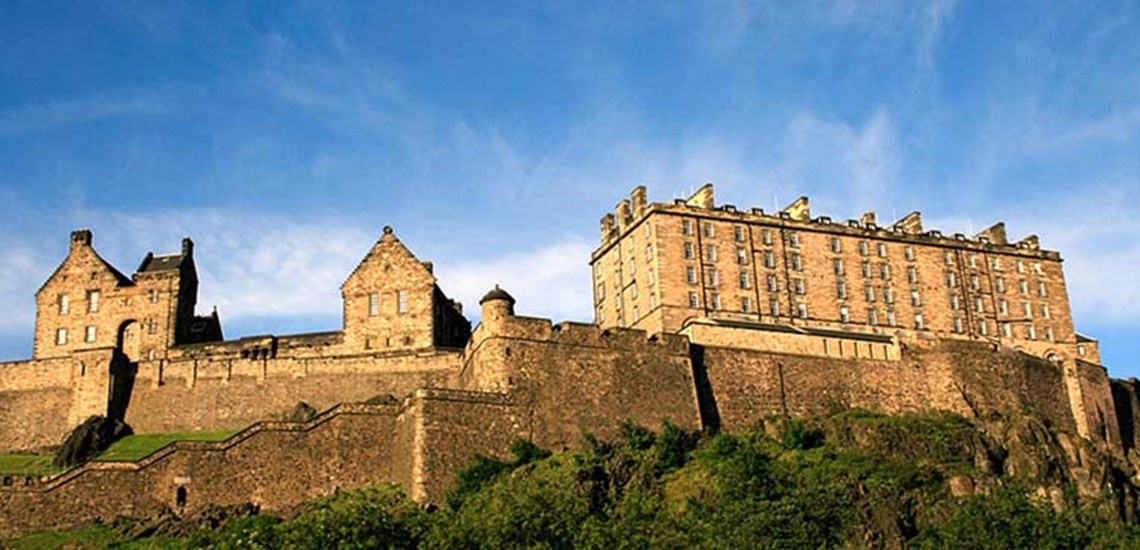Scotland
Though it is quite a small country, you likely won’t run into the famed Loch Ness Monster. You will, however, encounter plenty of beautiful scenery, quite a bit of haggis (Scotland’s national dish), and brilliant architectural masterpieces.
Venture up to the Highlands for a round of golf or a mountain biking trip. Or, if visiting during the wintertime, choose from a wide array of snow sports. Travellers who prefer to stay within the city can easily walk around and explore Inverness, home to the Inverness Museum and Art Gallery, the Victorian Market, and Inverness Castle.
Back in the capital Edinburgh, history blends perfectly with a cosmopolitan cityscape. Besides the museums, castles, and art galleries in this city, tourists can enjoy the adorable creatures at Edinburgh Zoo or indulge themselves with a meal in one of the city’s Michelin-starred restaurants. The main catch of Edinburgh, however, is its festivals, most of which take place in August. From book festivals to film, jazz, and children’s theatre, the city attracts plenty of travellers every year to congregate and to bask in the culture and festivities.
- Location: United Kingdom, Europe
- Size: 78,387 km2
- Capital: Edinburgh
- Largest Cities: Glasgow, Edinburgh, Aberdeen, Dundee, Inverness
- Climate: Scottish weather is highly variable due to the country’s geography, but it is rarely extreme. January and February are generally the coldest months of the year, whereas July and August are the warmest. Winter sees fewer tourists and presents savings opportunities for hardy travellers who are willing to brave the rainy and cold weather.
- Population: Around 5.25 million people
Language: English, Scottish Gaelic, Scots
Religion: Christianity, no religious affiliation
Literacy Rate: 73.3%
Government Type: Devolved government within a constitutional monarchy
Head of State: British Monarch
Land Borders: To the south, England
- Currency: Pound Sterling
- Natural Resources: Oil and gas, coal, petroleum, natural gas, iron ore, lead, zinc, gold, tin, limestone, salt, clay, chalk, gypsum, potash, silica sand, slate, arable land
- Main Agriculture: Barley, wheat, potatoes, soft fruits; sheep, lamb, mutton, dairy
- Main Industry: Fishing, electronics, textiles, whisky, tourism
- Electricity: 230 V AC, 50 Hz
- Time Zone: GMT +00
Country Tel. Code: + 44
- Visa/Passport: Australian passport holders may enter the country without a visa as long as they do not stay for over 6 months.
- Airport: Scotland has four major international airports: Aberdeen Airport (ABZ), 8 miles northwest of the city; Edinburgh Airport (EDI), 10 miles west of the city; Glasgow International Airport (GLA), 8 miles west of the city; and Glasgow Prestwick International Airport (PIK), 30 miles southwest of the city.
- Departure Tax: Scotland is a fairly small country, and travelling across it is quite easy. Public transportation (by rail and by bus) is modern and convenient, though hiring a car may be necessary if one intends to visit remote areas.
- Getting Around: Scotland is a fairly small country, and travelling across it is quite easy. Public transportation (by rail and by bus) is modern and convenient, though hiring a car may be necessary if one intends to visit remote areas.
- Credit Cards: Credit cards are widely accepted in Scotland.
- Drinking: The legal drinking age in Scotland is 18.
- Shopping: Scotland has its fair share of distinctive souvenirs, which include whiskies, tartans, Celtic jewelry, and sheepskins.
- Tipping: Tipping is customary and expected. In restaurants, an additional 3 to 5% tip is common even after a service charge has been added to the bill.
100% Australian; we 'get' the Australian travel style. And, better still, our arms are open to welcome our friends from other countries around the world, who'd like to travel with friendly Aussies.©
We've been creating and delivering the best ever holidays for solo travellers since 2006. As a boutique tour operator, we delight in detail, delivering personal service and finding your next best memory.©

